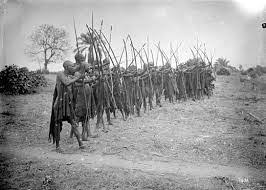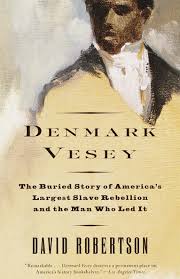 After the “Scramble for Africa” that began with the Treaty of Berlin(Berlin conference) in 1885, European powers dominated much of Africa, colonising vast territories and establishing ruthless regimes to enforce their rule. The Germans colonised significant regions, and these were Togo, Tanganyika (modern-day Tanzania), Cameroon, and Namibia.
After the “Scramble for Africa” that began with the Treaty of Berlin(Berlin conference) in 1885, European powers dominated much of Africa, colonising vast territories and establishing ruthless regimes to enforce their rule. The Germans colonised significant regions, and these were Togo, Tanganyika (modern-day Tanzania), Cameroon, and Namibia.
The German Colonisation Society, founded by Dr Karl Peters, greatly aided in the acquisition of Tanzania. Germans had a fragile hold on German East Africa and relied on violently repressive tactics to control and force the population into submission.
The Germans depended heavily on forced labour to build roads and accomplish various other tasks; they also levied head taxes to raise revenue for their administration in 1898.
Count Adolf von Götzen, in 1902, ordered that the natives grow cotton as a cash crop, but because of how rigorous growing cotton was, the natives refused to cultivate cotton and pay taxes. The fact that the German administration disrupted the natives’ social ideologies by forcing women to take on roles that they weren’t used to while taking men far away from their homes also aided in the dissatisfaction.
Eventually, in July 1905, there was a public revolt in which the Tanzanian Natives, led by a spirit medium named Kinjikitile Ngwale, turned to African spirituality to chase the Germans from their land. Kinjikitile Ngwale, who was also known as Bokaro, was said to be possessed by a snake spirit called Hongo.
The revolt was named after the spiritual medicine, ‘Maji’, which supposedly made the fighters immune to the bullets. The drug, however, was a mixture of water, castor oil and millet, but it gave the natives the confidence to resist the German rule on a united ground.
Bokero led the dissatisfied people in the Maji Maji revolt. The people, wearing millet stalks around their heads and armed with cap guns, spears, and arrows, began their journey from the Matumbi Hills, attacking German homes throughout the colony.
Soon, the Mbunga, Kichi, Ngoni, Ngindo, and Pogoro joined the movement. The German forces used guns, and more than 5 thousand of the Maji rebels were killed. The German government was taken off guard because the revolt was the first manifestation of a united, interethnic opposition to colonial rule in Africa.
The Germans military burnt villages and destroyed crops and other food sources used by the natives in a scorched-earth policy, which led to over 250,000 deaths from famine.
The German government executed Kinjikitile Ngwale on August 4, 1905, but some other spiritual medium took over the leadership of the revolt. The rebellion continued, and soon enough, over 5000 members of the Ngoni joined.
The Germans defeated the Ngoni people and ended any serious resistance. In April 1906, the southwest of German East Africa was alleviated, but it was in August of 1907 that the Rebellion was effectively stamped out.
The rebellion raised national consciousness in the natives shaking both German, Belgian and Portuguese colonisers out of their complacency, faith and illusions in their respective areas of influence and forcing them to do better.

1560
Shares

